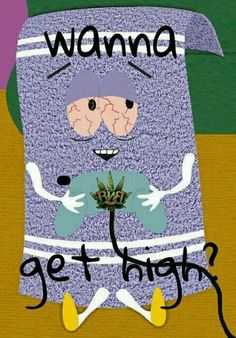Okay, Pragma, when you say:
I'm still stuck on clinical presentation. So I'm kind of stating the obvious but when we say 'PTSD tx should concurrently run in the presence of SUD,' I return to what cara susanna noted:
This is a golden rule. PE, for example, will not be effective if your Veteran is 1) nodding off from heroin use in session, 2) has many substance-related therapy-interfering behaviors (such as shooting up before time to listen to his/her PE tapes, being late to 90-minute PE session, forgetting homework materials or what content specific-information needed to retain, like SUD ratings), 3) using drugs before in vivos, etc. The research may show that concurrent treatment is effective in reducing both PTSD- and SUD-sxs, but what about stabilization?
If patient presents to the ED with psychotic sxs (hearing voices, thought disorders, paranoia), supportive therapy and psychopharm may be the way to go until we can get a handle on what is happening for this individual (i.e., stabilization). Someone please help me understand that if a patient's SUD is limiting their functioning (in addition to PTSD), isn't treatment of the SUD the lesser of two evils if we think the patient will not adhere to trauma-focused treatment (clinical presentation > lack of resources)?
This is precisely why I like Seeking Safety because the tools are taught and the patient learns to ready themselves for the next stage of treatment, which the patient learns through the initial psychoeducation sessions that the 'next stage of treatment' will be rough and not easy...especially if you are thinking about imaginals from combat trauma.
I'm sort of discussing clinics in general and aside from my question for smalltown am not really targeting anyone specifically here. My own experiences have included some really frustrating interactions with clinicians who DO purposely exclude people with PTSD and substance use disorder - they won't take anyone with an active diagnosis. They say this because they say PTSD treatment will make them worse, or that use will interfere with PTSD treatment but there is no data to support that. That's the drum I'm beating.
Of course you can't do PE if someone is using right before session. But it doesn't mean that you can't do it if they are someone who is just an active user that doesn't show up intoxicated to session. Check out the Foa JAMA article I posted. Moreover, that's great that you use Seeking Safety - it has empirical support for people that use substances and have PTSD.
ETA: Here is the JAMA abstract (
http://jama.jamanetwork.com/article.aspx?articleid=1724275)
Importance Alcohol dependence comorbid with posttraumatic stress disorder (PTSD) has been found to be resistant to treatment. In addition, there is a concern that prolonged exposure therapy for PTSD may exacerbate alcohol use.
Objective To compare the efficacy of an evidence-based treatment for alcohol dependence (naltrexone) plus an evidence-based treatment for PTSD (prolonged exposure therapy), their combination, and supportive counseling.
Design, Setting, and Participants A single-blind, randomized clinical trial of 165 participants with PTSD and alcohol dependence conducted at the University of Pennsylvania and the Philadelphia Veterans Administration. Participant enrollment began on February 8, 2001, and ended on June 25, 2009. Data collection was completed on August 12, 2010.
Interventions Participants were randomly assigned to (1) prolonged exposure therapy plus naltrexone (100 mg/d), (2) prolonged exposure therapy plus pill placebo, (3) supportive counseling plus naltrexone (100 mg/d), or (4) supportive counseling plus pill placebo. Prolonged exposure therapy was composed of 12 weekly 90-minute sessions followed by 6 biweekly sessions. All participants received supportive counseling.
Main Outcomes and Measures The Timeline Follow-Back Interview and the PTSD Symptom Severity Interview were used to assess the percentage of days drinking alcohol and PTSD severity, respectively, and the Penn Alcohol Craving Scale was used to assess alcohol craving. Independent evaluations occurred prior to treatment (week 0), at posttreatment (week 24), and at 6 months after treatment discontinuation (week 52).
Results Participants in all 4 treatment groups had large reductions in the percentage of days drinking (mean change, −63.9% [95% CI, −73.6% to −54.2%] for prolonged exposure therapy plus naltrexone; −63.9% [95% CI, −73.9% to −53.8%] for prolonged exposure therapy plus placebo; −69.9% [95% CI, −78.7% to −61.2%] for supportive counseling plus naltrexone; and −61.0% [95% CI, −68.9% to −53.0%] for supportive counseling plus placebo). However, those who received naltrexone had lower percentages of days drinking than those who received placebo (mean difference, 7.93%;
P = .008). There was also a reduction in PTSD symptoms in all 4 groups, but the main effect of prolonged exposure therapy was not statistically significant. Six months after the end of treatment, participants in all 4 groups had increases in percentage of days drinking. However, those in the prolonged exposure therapy plus naltrexone group had the smallest increases.
Conclusions and Relevance In this study of patients with alcohol dependence and PTSD, naltrexone treatment resulted in a decrease in the percentage of days drinking. Prolonged exposure therapy was not associated with an exacerbation of alcohol use disorder.

